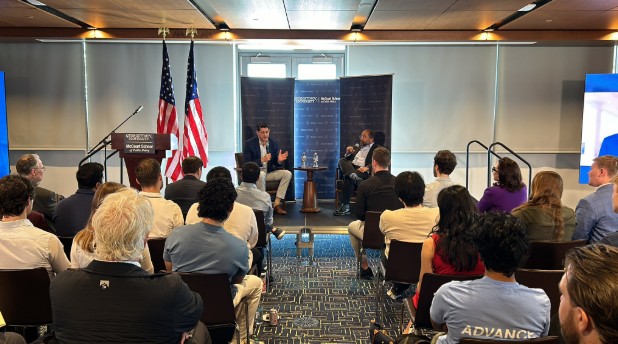By: AIF Staff
Simi Valley, CA – Earlier this week, former Speaker of the House and AIF President Paul Ryan was interviewed on Fox Business’ Kudlow, appearing live from the Ronald Reagan Presidential Library. Talking ahead of the Reagan National Economic Forum, Ryan and Kudlow discussed how current elected leaders can channel President Reagan’s growth-oriented approach to economic policy.
To watch Ryan’s interview on how President Reagan’s legacy applies to our present policy challenges, click here, or check out the excerpts below.
President Reagan’s enduring legacy:
“He ended the Cold War. He had a thesis for how to win the Cold War – peace through strength. He applied that thesis. It worked. It ended, not technically on Reagan’s watch but under his successor’s watch, and like you, you are one of the authors of the supply side movement and you were a big part of that movement in the Administration, he changed economics.
[President Reagan] changed economics, not just for the conservative movement and Republican Party, but for America and for the world. He made us a prosperous country again.
Remember the Carter Days with the stagflation and the malaise? Ronald Reagan made us feel good about ourselves as Americans and he made our country prosperous again because he brought to the economic doctrine to life that you, Jude Wanniski, Art Laffer, Bob Mundell and Jack Kemp and others brought to Washington to completely change the place and we all benefitted from it.”
Today’s tax policies draw inspiration from President Reagan:
“The Tax Cuts and Jobs Act, which I was a part of, and which is now the “One, Big, Beautiful Bill,” which is an extension of that, this all got started with Ronald Reagan.
This pro-growth economics, limited government, free enterprise doctrine is what got started by Ronald Reagan and that’s what the Tax Cuts and Jobs Act that the first Trump Administration put in place did. It’s what they are going to do now. I’m pretty confident the bill will get passed and it was all built upon this edifice that was created by Ronald Reagan.”

